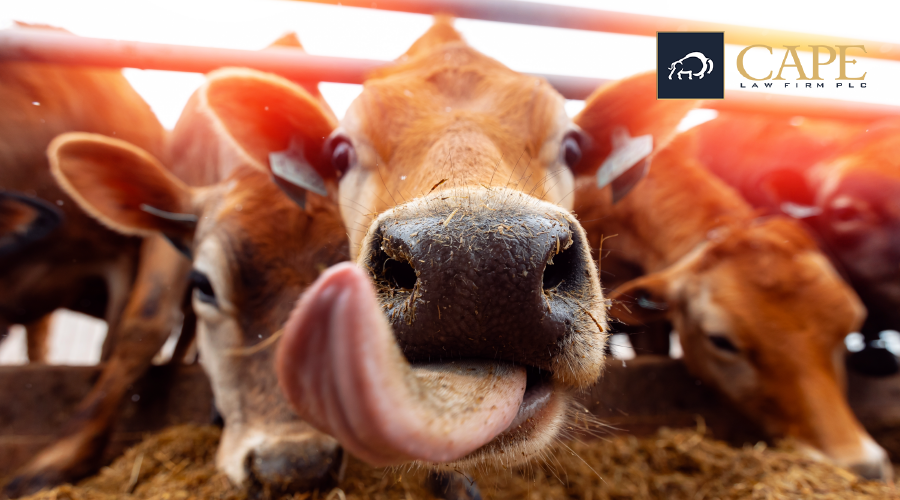Junior Livestock Show Taken to Court
The age-old traditions of junior livestock shows have become the fodder for a lawsuit as reported by Tiffany Lashmet of Texas A&M in her recent post. The suit concerns a junior goat exhibitor who had become deeply attached to her show goat and did not want to sell the goat at the junior livestock auction which occurs after the livestock exhibition competition. This case is also great example of the absence of reason and common sense in modern America.
Like many junior livestock shows, the Shasta District Fair conducts a premium auction of the animals following the competition, allowing the exhibitors to reap a financial reward for their hard work raising and caring for the animals. But following the 2022 fair, E.L. (a minor child) didn’t want to sell her show goat in the auction since she had become quite attached to it. Thus, E.L. and her Mom sought to terminate their participation in the auction and even offered to pay any damages. But the Fair officials weren’t having any of it, and refused their request. The goat was put in the auction, where it was bought by State Senator Brian Dahle for $902. After the auction, E.L. and her Mom tried again to prevent the goat’s sale and notified the Fair officials of E.L.’s right as a minor to disaffirm any contract that might have authorized the sale. Afterward, E.L.’s Mom took the goat to a third-party’s farm in Sonoma County and told the Fair officials she would pay any damages incurred regarding the sale. Still, the Fair officials refused and insisted the goat be returned and go to slaughter (which is the typical result following the auction of market animals).
Subsequently, the Fair officials contacted the County Sheriff’s office and sought felony criminal charges against E.L.’s Mom for theft of the goat. A detective at the Sheriff’s office applied for (and received) a search warrant to search for and seize the goat from a farm in Napa County. The Sheriff’s detectives then drove to the farm in Napa County (over 500 miles away) to execute the warrant, only to learn the goat was not in Napa County. They then drove to the Sonoma County farm (for which they had no warrant) and seized the goat. The Sheriff’s detectives then delivered the goat to the Shasta County Fair officials. Although the disposition of the goat remains unknown, E.L. and her Mom believe it has been slaughtered.
E.L.’s Mom filed a lawsuit (absolutely no surprise there). The suit names several defendants, including the Shasta County Fair and various Fair officials, the Sheriff’s Office and its detectives, a California 4-H representative, and others. The claims include civil rights violations under the U.S. and California Constitutions, conversion, negligence, and intentional infliction of emotional distress. One of the more interesting issues that will be addressed is the contractual relationship established by the Fair’s rules for exhibitors and the premium sale for the livestock. Nearly every livestock show has a rule book governing participation in the show and the various criteria for the competition and livestock ownership.
But at the end of the day, was it truly necessary for things to have escalated to the point of felony criminal charges? Having showed cattle and participated in several premium sales myself, I know for a fact that one of the primary purposes of the sale is to benefit the junior livestock exhibitor. Thus, why not let her keep the goat she had grown attached to? The Fair officials might have allowed the young goat exhibitor to set a “reserve” at the auction so that it could go through the sale, a commission could be paid to the Fair based on the highest bid price, and she could pay the commission and keep her goat. But maybe that makes too much sense.
EPA Seeking Comments on Proposed Rulemaking on Treated Seed
On October 12, 2023, the Environmental Protection Agency published an Advanced Notice of proposed rulemaking that it intended to examine treated seed and treated paint products under the “Treated Articles” exemption of the Federal Insecticide, Fungicide, and Rodenticide Act (FIFRA). The Agency’s proposed rulemaking stems from multi-year litigation brought against EPA by the Center for Food Safety which challenged the application of the Treated Articles exemption to avoid the requirement to register treated seed under FIFRA. This litigation focused heavily on the use of neonicotinoids in seed treatments.
The EPA’s announcement indicates that it will consider whether to propose new rules for treated seed and seeks comments on such topics as:
- Labeling instructions for treated seed (bag tags, etc.)
- Management of spilled seed
- Additional instructions for dust-off
- Tracking treated seed distribution and sale
- Registration of treated seed
- Left-over inventory of treated seed
Thus, EPA has requested public comments addressing these topics which it will use to determine whether additional rules should be implemented. Comments must be received by December 11, 2023.
Comments can be submitted by going to https://www.regulations.gov/ and specifically to docket number EPA–HQ–OPP–2023–0420.





